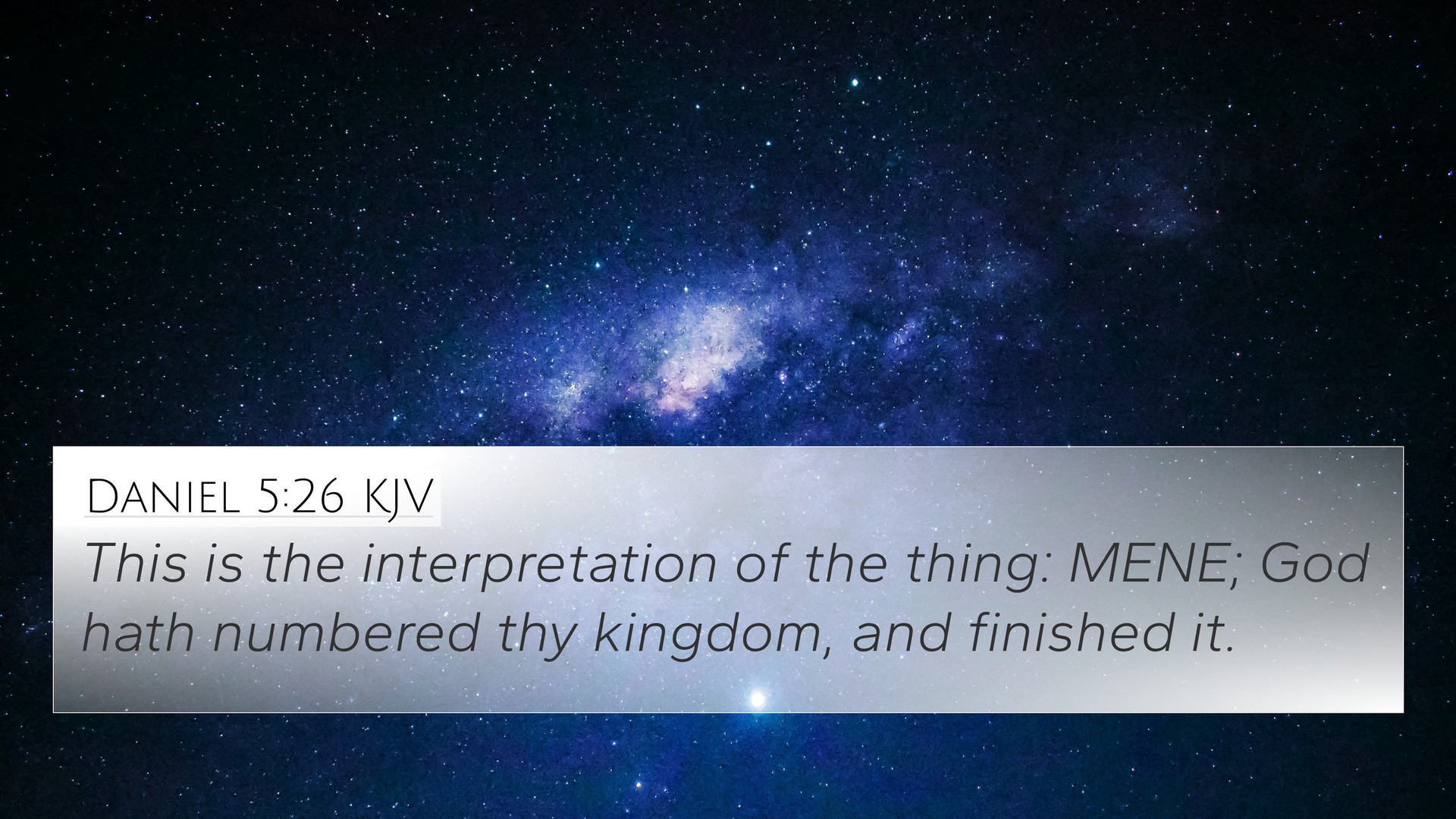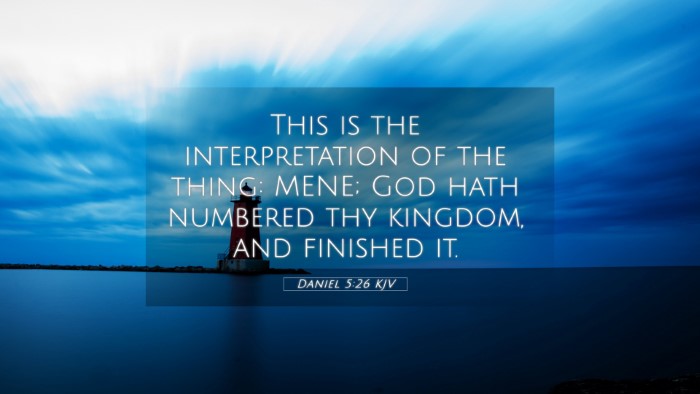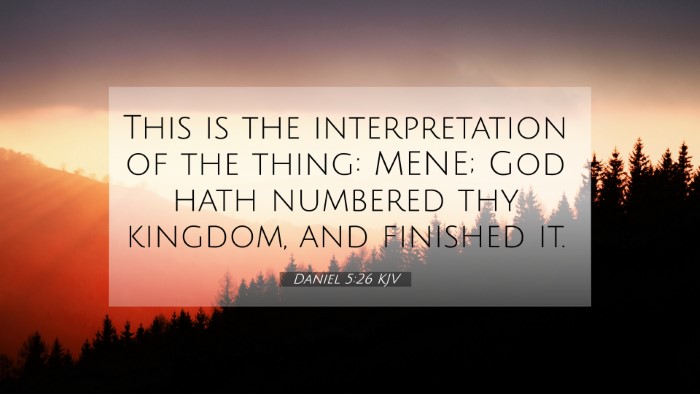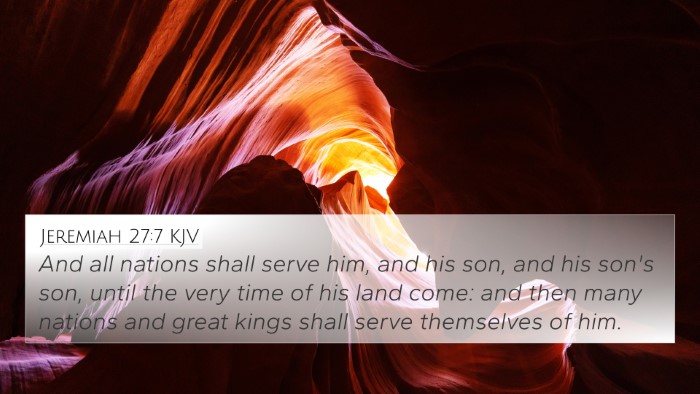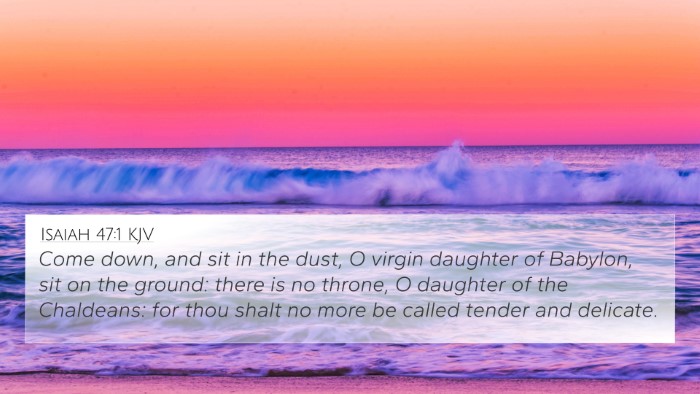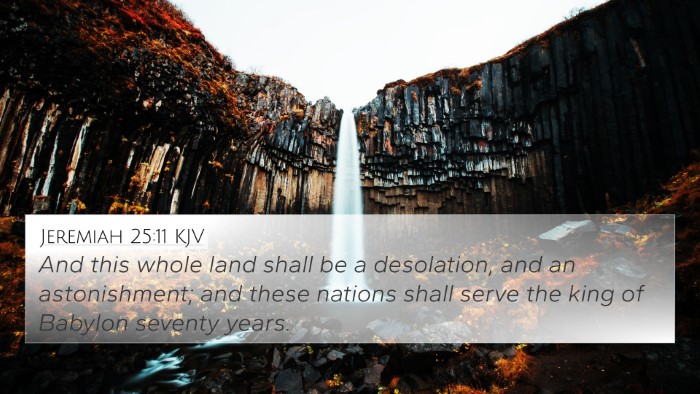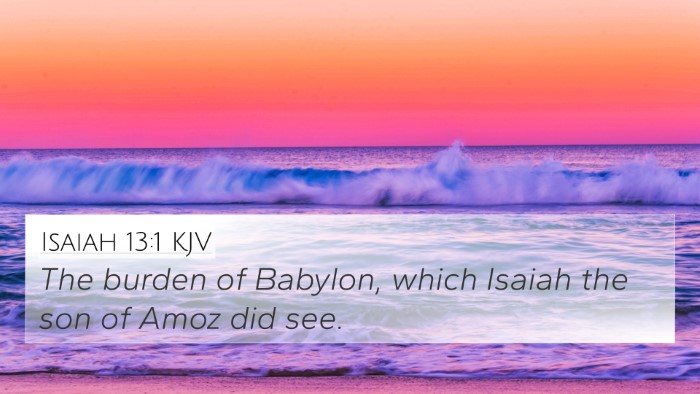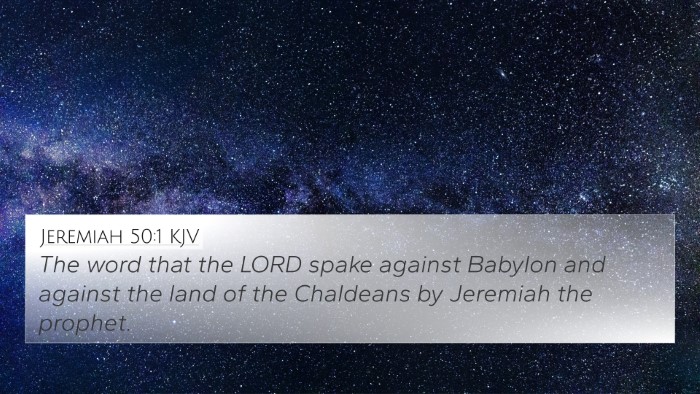Daniel 5:26 - Verse Meaning and Interpretation
Bible Verse: Daniel 5:26 - "This is the interpretation of the matter: MENE, God has numbered the days of your kingdom and brought it to an end."
Summary of Daniel 5:26
The verse is part of the narrative where the handwriting on the wall is interpreted by Daniel, signifying God's judgment against King Belshazzar. The term "Mene" indicates that God has counted and assessed the king's reign, declaring it to be finished. This stark declaration emphasizes God's sovereignty and the ultimate accountability of earthly rulers.
Insights from Commentaries
- Matthew Henry: Henry highlights that this statement served as a divine verdict against the king's egregious offenses, particularly his idolatry and blasphemy during a feast where sacred vessels were profaned. His commentary stresses the certainty of God's judgment and the theme of divine accountability.
- Albert Barnes: Barnes elaborates on the terminology used, explaining that "Mene" signifies a divine calculation of time and destiny. He discusses the implications of Belshazzar’s failure to heed God's warnings and the imminent end to his rule as a judgment for his arrogance and sacrilege.
- Adam Clarke: Clarke notes that the interpretation points to the fact that God has a fixed time for all nations and rulers, emphasizing the transience of human power in contrast to God's eternal sovereignty. He also discusses the significance of the term "Mene" in a broader prophetic and theological context.
Bible Cross-References Related to Daniel 5:26
- Proverbs 21:30: "No wisdom, no understanding, no counsel can avail against the Lord." - Emphasizes God’s ultimate control over worldly affairs.
- Isaiah 40:23-24: "He brings princes to nothing, and makes the rulers of the earth as emptiness." - Highlights God's authority over nations.
- Galatians 6:7: "Do not be deceived: God is not mocked, for whatever one sows, that will he also reap." - Reflects the principle of divine justice correlated with one's actions.
- Revelation 17:12-14: Discusses the judgment of earthly powers, correlating to God’s sovereignty over rulers.
- Psalm 75:7: "But it is God who executes judgment, putting down one and lifting up another." - Reinforces the theme of God ordaining the rise and fall of leaders.
- Daniel 2:21: "He changes times and seasons; he removes kings and sets up kings." - Provides insight into God’s control over governance.
- Romans 13:1: "Let every person be subject to the governing authorities. For there is no authority except from God, and those that exist have been instituted by God." - Connects to the divine establishment of authority.
- 1 Peter 5:5: "...clothed yourselves, all of you, with humility toward one another, for ‘God opposes the proud but gives grace to the humble.’" - A reminder of humility before God's judgment.
- Luke 12:48: "...Everyone to whom much was given, of him much will be required..." - The expectation of accountability tied to one’s position and authority.
- Ecclesiastes 3:17: "I said in my heart, God will judge the righteous and the wicked..." - Acknowledges the certainty of divine judgment for all conduct.
Thematic Connections
The verse is thematically connected to the concepts of divine judgment, accountability of nations and leaders, and the transitory nature of human authority. It serves as a reflection on how God operates within the framework of human history to carry out His predetermined purposes.
Tools for Bible Cross-Referencing
To deepen your understanding of Daniel 5:26 and its connections to other scriptures, a variety of tools and methods can be employed:
- Bible Concordance: Look up specific keywords such as "judgment" or "king" to find related verses.
- Bible Cross-Reference Guide: Utilize resources that list cross-references alongside each verse.
- Cross-Reference Bible Study: Engage in group studies focused on comparative verses.
- Bible Reference Resources: Explore various reference books to trace themes through scripture.
- Bible Chain References: Create chains of verses linked by thematic or contextual relevance.
- Comparative Bible Verse Analysis: Examine how different translations present similar ideas.
Conclusion
Understanding Daniel 5:26 requires an appreciation of its historical context, the nature of God's judgment, and the interconnectedness of scriptural themes across the Bible. By using tools and methods for cross-referencing, believers can gain a more profound insight into how various scriptures relate to divine authority and human accountability.
